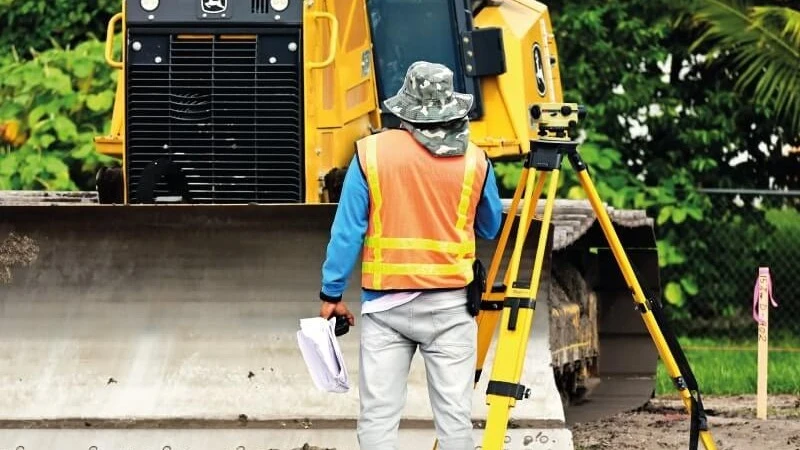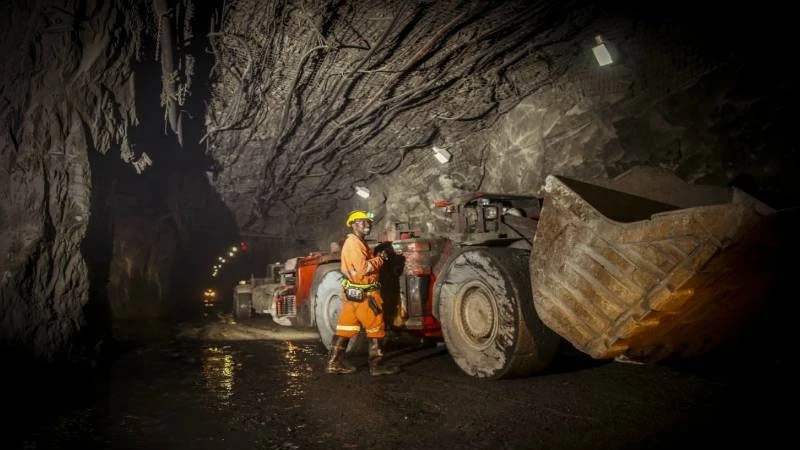‘Surveyed land shows promising outcomes’

Experts advise conducting a land survey before purchasing property to gain valuable insight into boundaries, topography, and potential issues. This helps ensure a smooth transaction, prevents disputes, and allows for more confident decision-making in real estate investments.
Though many potential buyers neglect this crucial step, but it is essential for a thorough understanding of the property's boundaries and potential issues.
Johnson Mwambuja, the director of the upcoming Dar-based Johan Land Surveying Company Limited, emphasized the importance of thorough research before purchasing property.
He stated in a recent interview with Property Watch in Dar es Salaam that many investors tend to choose a plot or house based on personal preference and make an offer without conducting proper due diligence.
“Surveying and land surveying is the measurement and mapping of our surrounding environment using mathematics, specialised technology and equipment. Surveyors measure just about anything on the land, in the sky or even on the ocean bed,” he explained.
Adding that: “Therefore, surveying is part and parcel when it comes to property purchasing; surveyors will determine the boundary measurements to make sure that the plot of land you think you are buying is actually what you are buying.”
It is said that with their expertise, a land surveyor can tell you whether the trees, building, fences, sidewalks, driveways, and other features of the land actually lie on the property, and also whether anyone else’s buildings or other features encroach onto the property you wish to buy.
For a prospective land buyer to catch potential problems with his/her plan before purchasing the land, land surveyors would be of benefit as they can help the buyer in evaluating the possibilities for building upon the land. “If you plan to develop the land a survey can help you determine whether this is possible or even legal.”
On the other hand, buyers are encouraged not to go off an old land survey as it may not describe recent changes to the land. Therefore, before conducting a land surveyor, the buyer ought to ask for a property profile, which will list the ownership information, legal description, plat map, tax information, and other characteristics.
Recognizing the significance of property surveys, FindLaw has compiled a list of the top 10 reasons why individuals should consider having their property surveyed. These reasons cover a range of important considerations for property owners.
Boundary lines
One of the most common reasons a landowner seeks the assistance of a surveyor, the location of boundary lines and other lines of occupancy or possession is a critical piece of information to have before you build a fence, add a sunroom or pave your driveway.
All too often the survey shows that you and your neighbors were operating under the wrong assumption about the placement of the boundary line between your properties. Before you have that fence erected, you want to make sure it will be built on your property, not your neighbor's. The boundary line certification will also tell you whether the legal description of your property is accurate.
Overlaps
Part of the boundary line certification, most surveys include a statement that unless the surveys says otherwise, there are no discrepancies between the boundary lines of your property and the adjoining property. This is especially pertinent if your property is continuous with alleys, roads, highways, or streets.
Rights-of-way
A survey will show all the conditions imposed by law that are reflected in your property's title report and other agreements. If your property blocks your neighbor's access to the road, for example, there may be an old agreement that gives your neighbor the right to walk across your yard to the street.
Ponds
The typical survey reports visible or surface waters only. Underground waters and wetlands are topics that are better covered by other professional inspections.
Right-of-support
Unbeknownst to you or your next-door neighbor, you may have an obligation by law to support your neighbor's driveway by maintaining your own.
Existing improvements
The surveyor will usually certify that the buildings and other improvements, alterations, and repairs to your property that exist at the time of the survey are not in violation of laws or other restrictions such as those regarding height, bulk, dimension, frontage, building lines, set-backs, and parking.
Of course, the surveyor will also tell you if your latest improvement is in violation of a local ordinance or other law, which will put you on notice that a change is in order.
Infrastructures
Poles and above-ground wires are obvious, but the surveyor can usually report on the existence of underground cables and drains, as well, if the information is provided to him or her by your utility companies and municipality. Such information is important for two reasons.
A utility company may have the right to use a portion of your property for upkeep of utility lines, and may have a say in how tall you let your trees grow, for instance. Also, knowing the exact location of underground utilities is critical before any excavation or construction begins.
Cemeteries
It is unlikely that unbeknownst to you there is an old family burial ground in your back yard. The survey will show the exact location of any old cemeteries on your plat.
Access
Your survey should state, at a minimum, whether there is physical vehicular ingress and egress to an open public street. It may also specify the adequacy of access for a particular purpose, such as delivery trucks, emergency vehicles such as fire trucks, and driveways for tenants.
Zoning classification
You probably know whether your property is zoned for residential or light industrial use. But you may be surprised to discover that your zoning classification puts specific restrictions on how you use your property.
This part of the survey simply reports your zoning jurisdiction and classification. Once you have your completed and certified survey, you may want to consult an attorney about whether you are using your property in conformance with zoning ordinances or for other advice about the legal ramifications of your property survey.
Top Headlines
© 2024 IPPMEDIA.COM. ALL RIGHTS RESERVED























